
Guide
Garden "furnishing" made easy
by Moomii Interior Design Studio

Certain carpets are sure-fire winners. They keep dirt at bay better than others. That's exactly what you need outdoors or in challenging rooms like the kitchen.
But sometimes appearance isn't everything. Recently, I was dazzled by the look of a rug. I didn't pay enough attention to material properties and key specs. It was simply too thick for the kitchen and became a potential tripping hazard. Pieces of fluff got tangled in the long tassels from when I first rolled it out, so I had to say goodbye to my new gem again straightaway. If I'd have thought about what you need to consider when choosing a carpet beforehand, things would have been different.
Handling is mostly an afterthought when it comes to textiles, but it's exactly this that determines how long your carpet will last. The less you have to clean it later, the longer it will last. Or, more accurately, the more water-resistant the rug, the less often it stains, especially in heavily frequented rooms like the dining room. The craft, colour and pattern are obviously important, but it's properties like size and material that make a rug a sure-fire winner in terms of handling.
The material is half the battle. Artificial fibres like polyester enable the lotus effect, where liquids form droplets. Vinyl rugs are a well known example. They are woven artificial rugs and mats that are made from one piece of vinyl film. The latter is more like a printed doormat than a woven rug and a spilt drink has no effect, but only the printed mat is resistant to oily stains. Like many rugs made from synthetic fibres, vinyl rugs are weatherproof, robust and long-lasting. This makes them suitable for a balcony or terrace.
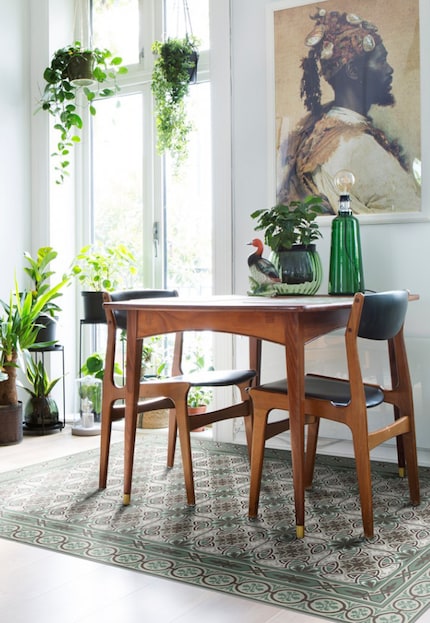
Vinyl carpets by Beja Flor, Brita Sweden and Horredsmattan are made from recycled PET bottles. They're recyclable and more durable than natural wool variants. Stains can be removed with water and a little soap. Outside, you just need a garden hose to get rid of dirt. No need for tapping or shaking. Stubborn stains can be dealt with by hand or machine washing woven rugs at a maximum of 30 degrees. Despite having a higher resistance, the colours on vinyl rugs can also fade in strong sunlight over time. Turning them occasionally or placing them in the shade can prevent this.
A carpet has to be the perfect height to be practical. In bedrooms and living rooms, they can be high, soft and shaggy, but they should be as flat as possible in the kitchen or hallway where rugs get more use. This is why low-pile rugs made from artificial fibres like vinyl mats are more suitable at a maximum of 1 cm high. Unlike shaggy or furry rugs, crumbs are harder to hide in the shorter strands. This makes vacuuming easier. Low-pile carpets also have a benefit for pets: their paws don't get caught as often. And you won't get your chair stuck in the rug under the dining table as much.
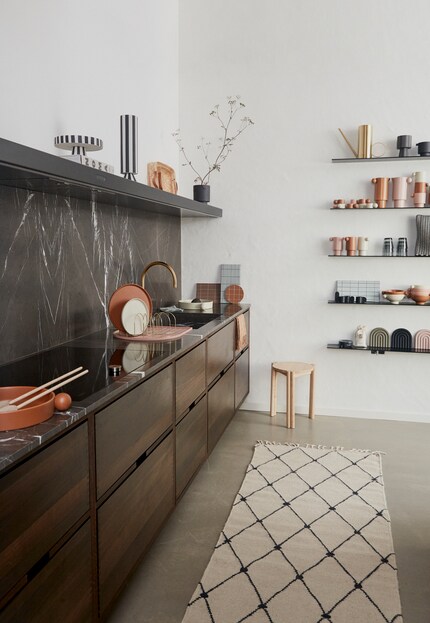
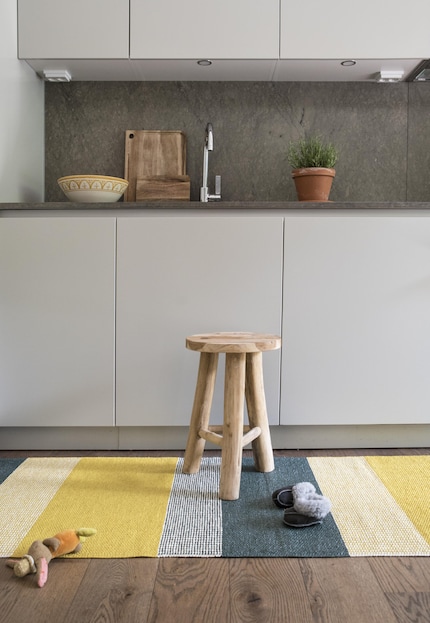
The size of the rug also determines how easy it is to use and is influenced by existing furniture, floor plan and space constraints. Whether vinyl or low-pile, you need an especially big rug under the kitchen table. The chair legs need room so that they don't wobble or teeter on the edge. Flat woven rugs or mats should extend around 60 to 70 cm beyond the table on all sides. This ensures that nobody gets their chair stuck. Another plus is that it creates a harmonious look when a rug can unfold. The same goes for hallways, which are mostly long and rectangular. Longer runners rather than small carpets are a good option here. They create a path right into the next room, preventing the odd trip or slip.
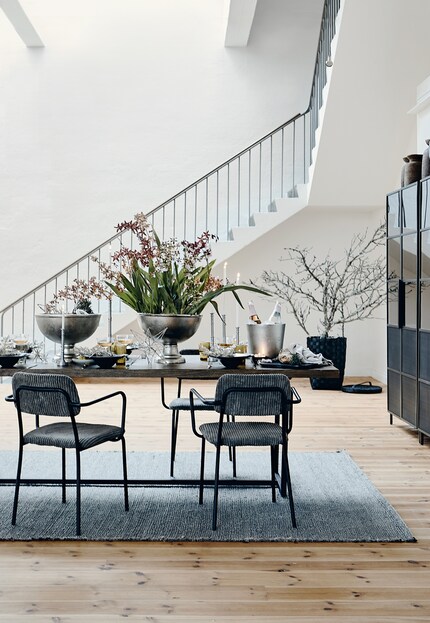
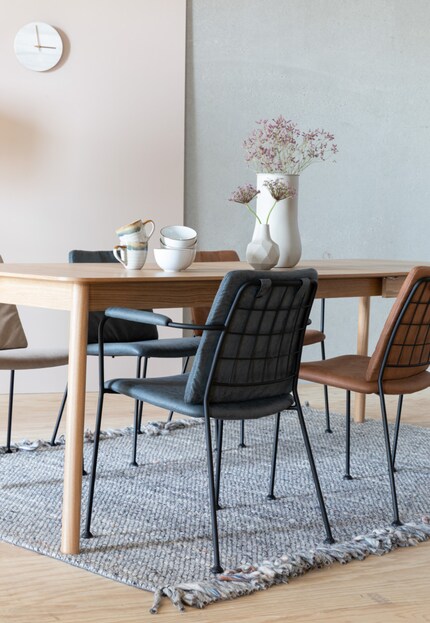
Besides size and shape, the right base ensures that a rug will stand the test. Most rugs don't have a non-slip underside. Carpet glides can help to keep things secure.
Last but not least, an eye-catching rug can have benefits. The vividness and pattern determine how often you wash your rug. Go for dark or patterned options for indoors and out, as they hide food stains. It'll save you a wash or two.
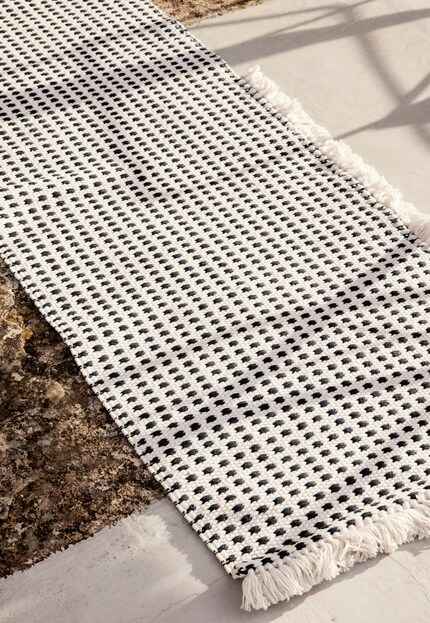
Like a cheerleader, I love celebrating good design and bringing you closer to everything furniture- and interior design- related. I regularly curate simple yet sophisticated interior ideas, report on trends and interview creative minds about their work.
Practical solutions for everyday problems with technology, household hacks and much more.
Show all